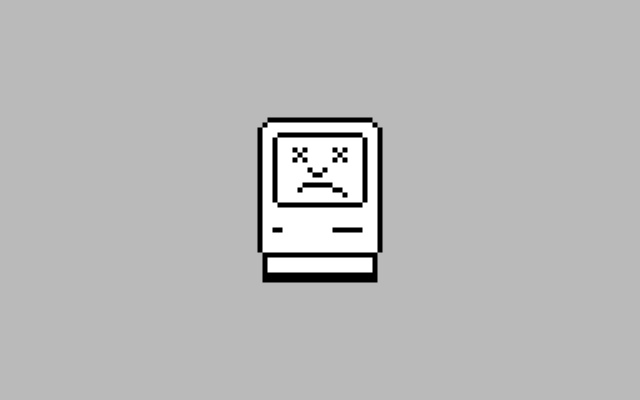Another Apple announcement, another de-emphasis on the Mac brand. It seems that every time Apple opens its corporate pie-hole, the venerable Macintosh brand drops down a notch in importance, and the Mac’s future demise seems more likely.
I was on a recent episode of Leo Laporte’s MacBreak Weekly, and after an hour and 45 minutes on a show with “Mac” in the name, the M-word was scarcely mentioned.
No, the Mac brand isn’t going away soon. I’m sure they’ll be upgraded and improved and sold for years to come. And they’re not failing in the market.
But it’s clear that the Mac will die. Sort of. Here’s what I’m talking about.
In Apple’s recent earnings report, the company said Mac sales were up by 19 percent compared with the same quarter a year ago.
Actually, the Mac sales picture is more complicated. Even though Mac sales were higher in Q4 than last year’s Q4, they actually declined compared with the quarter previous — by 6 percent. In other words, Apple sold more Macs in the months of July, August and September than they did during the holiday quarter of October, November and December.
And even year-over year, Mac sales declined in North America, which was compensated for only by huge increases in Europe and Asia.
And compared to iOS business, forget about it. Apple sold more iOS devices in 2011 alone than the total number of Macs in the last 28 years. Yes, iOS devices are cheaper to buy. But they’re also more profitable in part because Apple gets one third of all money spent on apps.
Macintosh could never beat Windows on market share. But from a business perspective, Apple’s revenues on iPhone alone exceed all revenues from all Microsoft businesses now. Steve Jobs lived long enough to PWN Bill Gates. But he didn’t do it with the Mac.
The Mac is a solid business and Apple isn’t about to abandon it. But it’s also true that the company is slowly preparing for a world without Mac.
Mac OS X Without the ‘Mac’
Apple announced this week that the platform formerly known as Mac OS X would in future be called simply “OS X.”
The company has done something like this twice before.
A few years ago, Apple removed the word “Computer” from the name of the company. It used to be “Apple Computer Inc.,” and they changed it to “Apple Inc.”
Apple is a stickler for accuracy and consistency in the names it gives to things. Apple removed the word “Computer” because the company now makes so much more than computers.
More recently, the company changes the name of its mobile software from “iPhone OS” to “iOS.” And for the same reason: Accuracy and consistency.
Because the iOS would power iPad as well, the name “iPhone OS” made no sense.
So why did Apple take the “Mac” out of “OS X”? I think it’s clear that the operating system will soon be making its appearance on hardware products that do not have the “Mac” branding.
The long awaited, rumored and speculated about TV set from Apple is one possibility.
Another possibility is Apple’s future touch-based desktop and laptop systems (which Apple hasn’t announced, but which some people including Yours Truly believes to be inevitable).
A third possibility is that OS X could one day replace iOS on iPads.
A fourth possibility is a line of completely unexpected branded products.
And while Apple is taking the “Mac” out of OS X, it’s putting the iOS in.
OS X Becomes More iPad-Like
When Apple announced Mac OS X Lion, many were surprised by the many iOS-like features added to the platform.
Apple added multiple home screens, new multi-touch gestures for the Magic Trackpad and MacBook trackpad, and full-screen apps. They added little touches, like jiggling icons and folders and a Mail user interface that looks just like the app in iOS.
The most extreme example of Apple preparing you for a multi-touch desktop future is the reversal in the direction that the page goes when you gesture up or down on a trackpad. Now by default when your fingers gesture down, the page goes up, just like on an iPad. It’s extreme, because it involves not just a feature, but a re-training of the user.
The OS X Mountain Lion announcement ushered in even more iOS features. And these tend to be more about making the Mac usage model more like using an iPhone or an iPad.
For example, the addition of Messages, Reminders, Notes, the Notification Center and social sharing enables users to use their Macs like iPads. The behaviors and impulses that your iOS gadget has trained you for now work on Mac.
New Mountain Lion features also unite iOS and OS X systems with improved iCloud, AirPlay and Game Center integrations.
So now the trendlines are clear. Apple will allow the venerable Mac brand to be “cannibalized” by its current mobile products, and by future desktop products that look, feel and function like its current mobile products. And the OS that powers the Mac will continue to evolve into product lines that do not have the Mac branding.
Some day the Mac will die. But it will be re-incarnated into lots of other products that are not called Mac.
The Mac will die. Yet the Mac will never die.
Picture courtesy of Steven M Scotten: https://splicer.com/2011/10/05/steven-paul-jobs-1955-2011


